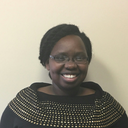Outcomes Research Lab
Mission: To use health services research, health economics methodologies to illuminate overall trends and variations in neurosurgical care, cost and comparative effectiveness of alternative neurosurgical treatments options, health resource utilization, create predictive models of neurosurgical outcomes and develop the evidence basis to drive quality improvement in neurosurgery in order to increase overall value in neurosurgery including but not limited to improving the processes, outcomes, practice of neurosurgery, neurosurgical decision making, patient health related quality of life and satisfaction, neurosurgical population health, reduction of disparities in access to neurosurgical care and outcomes, and implementation of evidence based policies.
Vision: To become the world’s leader in neurosurgical outcomes research, organizing the universe of neurosurgical data and making it simple, useful, informative, practical and comprehensible for neurosurgeons, patients and all stakeholders.
Founder and Overall Director: Maxwell Boakye, MD, MPH, MBA FACS: Dr Boakye is Professor Ole A.,Mabel Wise&Wilma Wise Nelson Endowed Chair, Chief of Spinal Neurosurgery, Clinical Director of the Kentucky spinal cord injury center, and Director of the spine fellowship at the University of Louisville. A neurosurgeon-scientist with approximately 50% devoted effort to research, Dr. Boakye has had a long-standing interest in outcomes research initially as an Assistant Professor and Director of the Outcomes research lab, Department of Neurosurgery, Stanford University, Palo Alto from 2003-2010 and the Director of the University of Louisville Department of Neurosurgery Outcomes Research program 2011-present.
Maxwell Boakye, MD, MPH, MBA FACS: Dr Boakye is Professor Ole A.,Mabel Wise&Wilma Wise Nelson Endowed Chair, Chief of Spinal Neurosurgery, Clinical Director of the Kentucky spinal cord injury center, and Director of the spine fellowship at the University of Louisville. A neurosurgeon-scientist with approximately 50% devoted effort to research, Dr. Boakye has had a long-standing interest in outcomes research initially as an Assistant Professor and Director of the Outcomes research lab, Department of Neurosurgery, Stanford University, Palo Alto from 2003-2010 and the Director of the University of Louisville Department of Neurosurgery Outcomes Research program 2011-present.
Research Goals
The outcomes research lab takes a health services approach to analysis of neurosurgical data in order to understand trends in health resource utilization, complications, costs, comparative effectiveness in the medical and surgical management of neurosurgical disease. The primary approach is through analysis of observation data either retrospectively or prospectively collected. We realize the limitations of observational studies but also know how difficult it is to complete randomized clinical trials of surgical interventions therefore observational studies have an important role to play and causal inferences can be drawn from observational studies that are properly designed.
A variety of methodological approaches including supervised methods (such as regression, classification, etc), unsupervised methods (such as cluster analysis, support vector machine, association rules, ect) for evaluation of associations and predictive modeling; an array of bias reduction techniques such as (propensity score, instrumental variables); different types of studies (such as cohort, case-control studies, systematic reviews, meta-analysess are utilized. Directed acrylic graphs are used to draw strong inferences and infer causality where appropriate. Prospective observation studies and randomized clinical trials are performed as needed but majority of effort is in retrospective cohort studies with analysis of existing data and appropriate methodological rigor is brought in order to overcome confounding biases and draw strong inferences.
Biostatistics Team
Director: Beatrice Ugiliweneza, PhD, MSPH has expertise in health data science and analytics with over 15 years of experience in study design, analysis, reporting and dissemination. Her work spans interventional and observational studies, supervised and unsurpervised analytical algorithms, technical and laymen report summarization of the results. She also has extensive teaching experience in theoretical and applied analytics. Her research interests include health outcomes, health services research, health economics and health analytics.
Beatrice Ugiliweneza, PhD, MSPH has expertise in health data science and analytics with over 15 years of experience in study design, analysis, reporting and dissemination. Her work spans interventional and observational studies, supervised and unsurpervised analytical algorithms, technical and laymen report summarization of the results. She also has extensive teaching experience in theoretical and applied analytics. Her research interests include health outcomes, health services research, health economics and health analytics.
Biostatisticians: Dengzhi Wang, MS is a biostatistician II. Statistical analysis of data from KSCIRC projects and NeuroRecovery Network (NRN). Health care utilization and cost analysis, and trend analysis of healthcare data. Cancer survival analysis and standardized incidence ratio analysis of cancer data.
Dengzhi Wang, MS is a biostatistician II. Statistical analysis of data from KSCIRC projects and NeuroRecovery Network (NRN). Health care utilization and cost analysis, and trend analysis of healthcare data. Cancer survival analysis and standardized incidence ratio analysis of cancer data.
.Biostatistics Methodologists Collaborators:
Health Economics and Policy Collaborators:
Jose Fernandez
Annual Clinical Research Course
Julio Ramirez, MD 
Co-Investigators and Collaborators:
Brian Williams, MD
Norberto Andaluz, MD
Shiao Woo, MD
Stephen Skirboll, MD
Fabian Carballo
Spine Outcomes Research:
Doniel Drazin, MD
Isaac Karikari, MD
Miriam Nuno, PhD
Vascular Outcomes Research:
Dale Ding, MD
Functional Outcomes Research:
Joseph Neimat, MD
Shivanand Lad
Neurotrauma Outcomes Research:
Emily Sieg, MD
Selected Publications:
Sharma M, Ball T, Wang D, Ugiliweneza B, Rattani A, Woo S, Boakye M, Neimat JS, Williams B, Andaluz N. Incidence of repeat procedures and healthcare utilization following surgery, radiosurgery, and percutaneous procedures in elderly patients with trigeminal neuralgia. J Neurosurg. 2022 Jan 28:1-12. doi: 10.3171/2021.12.JNS211880. Epub ahead of print. PMID: 35090128.
Sharma M, Aljuboori Z, Dietz N, Wang D, Ugiliweneza B, Williams B, Andaluz N. Incidence and Long-Term Health Care Utilization Associated with Pseudomeningocele Repair Following Vestibular Schwannoma Resection: A National Database Analysis. Cureus. 2022 Jan 14;14(1):e21248. doi: 10.7759/cureus.21248. PMID: 35186536; PMCID: PMC8844231.
Jain N, Sharma M, Wang D, Ugiliweneza B, Drazin D, Boakye M. Simulated bundled payments for four common surgical approaches to treat degenerative cervical myelopathy: a consideration to break the clinical equipoise. J Neurosurg Spine. 2022 Jan 14:1-8. doi: 10.3171/2021.10.SPINE211105. Epub ahead of print. PMID: 35171836.
Sharma M, Jain N, Wang D, Ugiliweneza B, Boakye M, Drazin D. Impact of age on mortality and complications in patients with Ankylosing Spondylitis spine fractures. J Clin Neurosci. 2022 Jan;95:188-197. doi: 10.1016/j.jocn.2021.11.035. Epub 2021 Dec 17. PMID: 34929644.
Sharma M, John K, Dietz N, Jain N, Madrigal FC, Wang D, Ugiliweneza B, Drazin D, Boakye M. Impact of preoperative treatment of osteoporosis on re-operations, complications and health care utilization in patients undergoing thoraco-lumbar spine fusions. A 5-year national database analysis. J Clin Neurosci. 2021 Nov;93:122-129. doi: 10.1016/j.jocn.2021.09.024. Epub 2021 Sep 17. PMID: 34656235.
Boakye M, Sharma M, Adams S, Chandler T, Wang D, Ugiliweneza B, Drazin D. Patterns and Impact of Electronic Health Records-Defined Depression Phenotypes in Spine Surgery. Neurosurgery. 2021 Jun 15;89(1):E19-E32. doi: 10.1093/neuros/nyab096. PMID: 33862621.
Kumar CD, Dietz N, Sharma M, Cruz A, Counts CE, Wang D, Ugiliweneza B, Boakye M, Drazin D. Spine Surgery in the Octogenarian Population: A Comparison of Demographics, Surgical Approach, and Healthcare Utilization With the PearlDiver Database. Cureus. 2021 Apr 19;13(4):e14561. doi: 10.7759/cureus.14561. PMID: 34026377; PMCID: PMC8133513.
Dietz N, Sharma M, Adams S, Ugiliweneza B, Wang D, Bjurström MF, Karikari I, Drazin D, Boakye M. Health Care Utilization and Associated Economic Burden of Postoperative Surgical Site Infection after Spinal Surgery with Follow-Up of 24 Months. J Neurol Surg A Cent Eur Neurosurg. 2021 Apr 12. doi: 10.1055/s-0040-1720984. Epub ahead of print. PMID: 33845504.
Jackson JE, Beres AL, Theodorou CM, Ugiliweneza B, Boakye M, Nuño M. Long-term impact of abusive head trauma in young children: Outcomes at 5 and 11 years old. J Pediatr Surg. 2021 Dec;56(12):2318-2325. doi: 10.1016/j.jpedsurg.2021.02.019. Epub 2021 Feb 19. PMID: 33714452; PMCID: PMC8374003.
Dietz N, Sharma M, Alhourani A, Ugiliweneza B, Nuno M, Drazin D, Wang D, Boakye M. Preoperative and Postoperative Opioid Dependence in Patients Undergoing Anterior Cervical Diskectomy and Fusion for Degenerative Spinal Disorders. J Neurol Surg A Cent Eur Neurosurg. 2021 May;82(3):232-240. doi: 10.1055/s-0040-1718759. Epub 2021 Feb 4. PMID: 33540452.
Residents Fellows and Students:
Mayur Sharma
Ahmad Alhourani
Nicolas Khattar
Nicholas Dietz
Alumni
 Chitra Kumar is a recent graduate from Princeton University where she majored in Spanish and Portuguese with minors in Latin American Studies and South Asian Studies. Her research background and interests focuses on gaining a better understanding of spinal cord injuries by not only understanding the affected neural mechanisms but also ways to ameliorate the effects of the injury. Moreover, she’s also fascinated by the different surgical options available for different spinal cord diseases, including the efficacy and healthcare utilization associated with each. Currently, she is a Clinical Research Coordinator at the University of Chicago with the Comprehensive Care Program. This program aims to quantify the value of the doctor-patient relationship while simultaneously helping address social barriers that prevent patients from achieving better health.
Chitra Kumar is a recent graduate from Princeton University where she majored in Spanish and Portuguese with minors in Latin American Studies and South Asian Studies. Her research background and interests focuses on gaining a better understanding of spinal cord injuries by not only understanding the affected neural mechanisms but also ways to ameliorate the effects of the injury. Moreover, she’s also fascinated by the different surgical options available for different spinal cord diseases, including the efficacy and healthcare utilization associated with each. Currently, she is a Clinical Research Coordinator at the University of Chicago with the Comprehensive Care Program. This program aims to quantify the value of the doctor-patient relationship while simultaneously helping address social barriers that prevent patients from achieving better health.
Kristin Nosova
Links
Surgical Outcomes Club
Academy Health
ISPOR
American Association Health Economics


